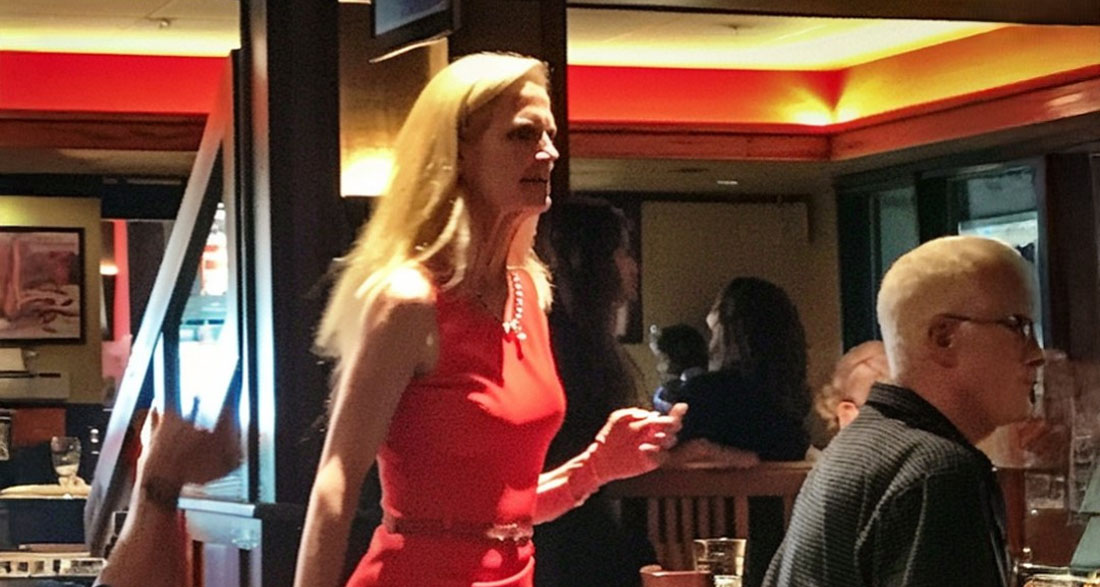After losing my wife, Emily, in a tragic plane crash, I believed that my heart had died with her. For 23 long years, I carried the weight of regret and grief, mourning the love I had lost, the life we never got to live. I thought that was the end of my story—until fate threw me one last curveball, leading me to a truth that would change everything I knew.
I stood at Emily’s grave, my fingers tracing the cold, smooth marble of the tombstone. Twenty-three years had passed, but the ache in my chest felt as raw as it had the first day. I placed a bouquet of bright crimson roses against the stone, the deep red a stark contrast to the muted gray of the grave, like drops of blood on fresh snow.
“I’m sorry, Em,” I whispered under my breath, my voice barely a murmur. “I should have listened. I should have believed in you.”
The sound of my phone buzzing in my pocket interrupted the silence. For a moment, I considered ignoring it. It felt disrespectful, being pulled away from my memories of Emily. But old habits die hard, and I took the call.
“Abraham?” It was James, my business partner. “Sorry to bother you during… your visit.”
“It’s fine,” I replied, my throat tight. “What’s going on?”
“Our new hire from Germany lands this afternoon. Can you pick her up from the airport? I’m tied up in meetings.”
“Sure. Send me the flight details.” I glanced at Emily’s name one last time, my heart heavy, before I turned away.
The airport was busy, the arrival terminal buzzing with excited voices and the shuffle of busy feet. I stood holding a sign that read “ELSA,” scanning the crowd for the woman who was about to become part of our team.
When I finally spotted her, walking toward me with honey-blonde hair and a bright, confident smile, something inside me froze. It wasn’t her face that caused the chill, but something deeper—something I couldn’t quite place.
“Mr. Abraham?” she greeted me, her voice carrying a soft, melodic accent. “I’m Elsa.”
“Welcome to Chicago,” I said, forcing a smile despite the lump in my throat. “And please, just call me Abraham.”
She smiled again, and I felt a strange wave of dizziness wash over me. That smile… it was familiar in a way I couldn’t explain. I had to shake my head to clear it.
On the drive to the office, Elsa chattered away happily about her move from Munich, her excitement about the new job, and little snippets about her life. She had an ease about her, a charm that made it easy to forget the weight of the past. And then there was her laugh—soft, musical, and yet… it was oddly familiar.
Later that week, our team gathered for lunch. Elsa’s sharp wit and quick humor had everyone laughing, myself included. She was so much fun to be around. “You two could be related,” one of the team members joked. “Same terrible jokes.”
I laughed it off, but deep down, I felt something stir. There was something about Elsa—something in the way she smiled, the way she teased, the determined look she had in her eyes when she worked. She reminded me so much of Emily, and yet, I couldn’t put my finger on how.
Months passed, and Elsa quickly became a vital part of the team. One afternoon, she knocked on my office door with a bright smile. “Abraham, my mother’s coming to visit from Germany next week. Would you join us for dinner? She wants to meet my American family—well, my boss.”
I chuckled at her choice of words. “I’d be honored.”
The dinner took place at a quiet, upscale restaurant. Elsa’s mother, Elke, greeted me warmly at first, but I could feel something unsettling in the air. There was a tension, a heaviness in her gaze. She studied me closely, her sharp eyes never leaving mine. When Elsa excused herself to the restroom, Elke leaned forward, her voice low but firm.
“Don’t you dare look at my daughter like that,” she said, her words cutting through the air.
I froze, my heart pounding. “Excuse me?”
“I know who you are,” she said, her voice trembling with a mixture of anger and sorrow. “And I know everything about you.”
Confused, I stared at her. “What are you talking about?”
Elke’s grip tightened around her wine glass. “Let me tell you a story,” she began. “There was once a woman who loved her husband more than anything. She wanted to give him the perfect gift—a reconciliation with his estranged best friend.
But her husband didn’t ask questions. He only saw pictures of her with another man, believed the lies he was told, and cast her aside.”
The words hit me like a punch to the gut. My stomach churned, memories flooding back. “Who are you?” I whispered, my voice shaking.
“Her name was Emily,” Elke continued, her eyes never leaving mine. “Your wife.”
My mind spun. I could barely breathe. “Emily died in a plane crash,” I choked out. “She’s gone.”
Elke’s expression softened, her eyes glistening with tears. “The plane crashed, yes. But Emily survived. She was found, clinging to life, her face burned beyond recognition. They mistook her for me—I hadn’t survived. My family took her in when she had nowhere to go, and together, we rebuilt her life.”
“No,” I whispered, shaking my head in disbelief. “That’s not possible.”
“She was pregnant, Abraham,” Elke said, her voice quiet but powerful. “Pregnant with your child.”
The ground beneath me seemed to tilt. I couldn’t breathe. “Elsa…” The realization hit me like a bolt of lightning. “Elsa is my daughter?”
Elke nodded, tears welling in her eyes. “Emily didn’t want to come back. She was afraid you’d reject her again. But when Elsa came here and showed me your picture—told me about her wonderful new boss—I knew the truth had to come out.”
When Elsa returned to the table, she immediately sensed the shift in the room. Her smile faded as she looked between us, both of our faces streaked with tears. Elke took Elsa’s hand, her voice soft but full of weight.
“Sweetheart,” she said, her voice trembling, “we need to talk.”
That night, over hours of tearful conversations, Elsa learned the truth about her mother, about the years Emily had spent rebuilding her life alone, far from me. And then, in the quiet of the restaurant, Elsa turned to me with tears in her eyes.
“Dad?” she whispered.
I nodded, my voice barely a whisper. “It’s me.”
In an instant, Elsa’s arms were around me, and I held her as tightly as I could, afraid to let go. The years of regret, of pain, of loss, melted away, replaced by something new—something beautiful—hope.
In the days that followed, Emily and I slowly began to reconcile our past. We sat down together, shared our stories, and pieced together the years that had been lost. I learned the full truth of the crash, her survival, and the painful years she had spent raising Elsa alone.
One afternoon, we sat in a quiet café, the weight of the past between us, but something lighter in the air. Emily looked at me, her expression soft. “I don’t expect us to go back to what we were,” she said gently. “Too much time has passed. But maybe, for Elsa, we can build something new.”
I looked out the window at my daughter, laughing softly at something on her phone. Her laugh, the same sound that had once filled our home, was like a balm for my soul. It made my heart ache.
“You were right, Emily,” I said softly. “We made something beautiful.”
Love doesn’t always come with perfect endings. Sometimes, it comes with second chances. It comes wrapped in the most unexpected forms—moments that rewrite the regrets of a lifetime. For me, it came in the form of a daughter I didn’t even know I had and a love that refused to die.
As I watched Elsa smile, I realized that sometimes, fate doesn’t take away. It simply waits for the right moment to return what was always meant to be.
What do you think of the story? Share your thoughts in the comments below!














